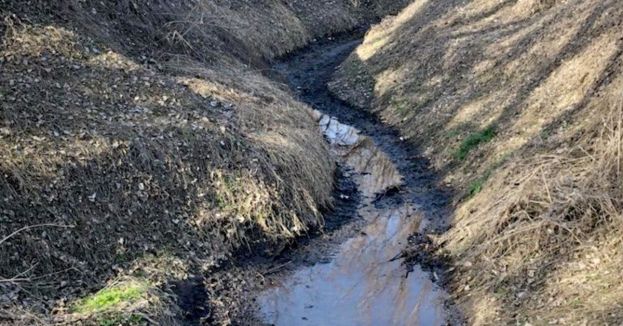The catastrophe was attributed to a fertilizer spill originating from the premises of NEW Cooperative, Inc. in Red Oak, as reported to the Iowa Department of Natural Resources (DNR) on March 11.
According to the DNR, approximately 1,500 tons, equivalent to 265,000 gallons, of liquid nitrogen fertilizer was discharged into a drainage ditch, subsequently contaminating the East Nishnabotna River. The spill was traced back to an inadvertent opening of a valve on an above-ground storage tank during the weekend.
DNR Fisheries staff disclosed that the detrimental effects of the spill were felt across the entire 49.8-mile expanse of the East Nishnabotna and Nishnabotna Rivers downstream of the incident, extending into Missouri’s segment of the Nishnabotna River before tapering off near the junction with the Missouri River. The toll on aquatic life was devastating, with a reported 749,242 fish casualties, predominantly minnows, shiners, dace, and chubs.
WATCH TRUMP: EUROPE HAS OPENED IT'S DOORS TO JIHAD![]()
Efforts are underway to assess the broader repercussions of the fertilizer release on the river's ecosystem. In compliance with Iowa state regulations, a permit is mandated for any discharge of pollutants into water bodies. The DNR is currently liaising with its legal department to chart the course for enforcement actions and restitution for the loss of aquatic fauna.
WATCH DUKE PROFESSOR: STUDENTS VIEWING THE WORLD AS OPPRESSOR VS. OPPRESSED![]()
April 01, 2024
Despite a recent decline in ammonia levels detected through field assessments, caution is advised by the DNR, urging the public to abstain from recreational activities on the river and to refrain from handling or consuming deceased fish discovered in or around the affected area.








 Discover alternative ideas that will make you think
Discover alternative ideas that will make you think Engage in mind bending debate
Engage in mind bending debate Earn points, rise in rank, have fun
Earn points, rise in rank, have fun


